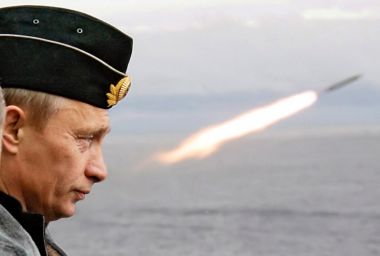Russia building weapons that can penetrate any missile defences, bares Putin

While the North Atlantic Treaty Organisation (NATO), led by the United States, is trying to build a formidable missile defence programme, Russia is out to develop weapons that can penetrate it.
In what could turn out to be another showdown between Russia and the U.S., Russian President Vladimir Putin told his defence officials that the defences against ballistic missiles being developed by the NATO is actually an attempt to "neutralise" their nation's strategic nuclear deterrent.
Putin also indicated that he views the NATO's missile defence programme as part of the US effort to gain a "decisive military superiority" over Russia.
Putin also questioned why the U.S. is still working on the missile shield despite Iran's deal with six world powers, which sought to curb the nation's nuclear programme in exchange for relief from international sanctions.
"So, references to the Iranian and the North Korean nuclear missile threat just have served to cover up the true plans, and their true task is to neutralise nuclear potential of other nuclear powers ... Russia in particular," Putin said, as quoted by Fox News.
Because of these, the Russian leader pledged that his country will come up with "strike systems capable of penetrating any missile defences."
He said Russian arms makers have in fact already built and tested prospective weapons systems.
Not to be outdone, Putin further said that Russia will have its own missile defence programme in the future, although he said his country's focus right now is really developing offensive weapons.
The Russian president's combative remarks against NATO are seen to further strain his country's ties with the U.S., which have severely deteriorated ever since the crisis in Ukraine developed. Russia has had a good diplomatic relationship with America since the Cold War ended in the late 1970s.











